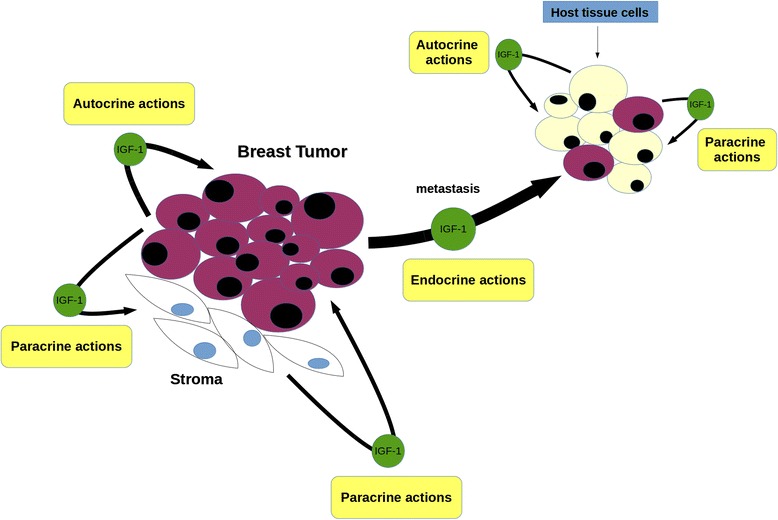Figure 1.

The IGF-1 role in breast cancer. IGF-1 is mostly secreted by stromal cells and acts through paracrine signaling to adjacent epithelial tumor cells and vice versa. Once the disease is well established within the primary breast tumor microenvironment, IGF-1 autocrine (within epithelium) and endocrine (via the systemic circulation) activity facilitates disease progression and metastasis respectively. Within the new tumor location, the interplay between metastasized breast cancer cells and host tissue cells, drive the last to a more cancerous phenotype via IGF-1 paracrine signaling. In addition, aberrant IGF-1 expression by host tissue cells supports BrCa proliferation via autocrine signaling.
